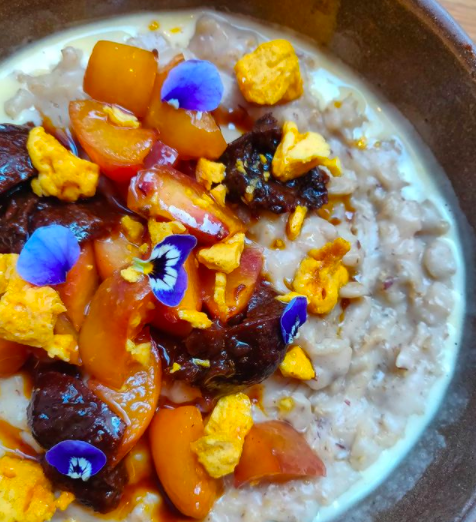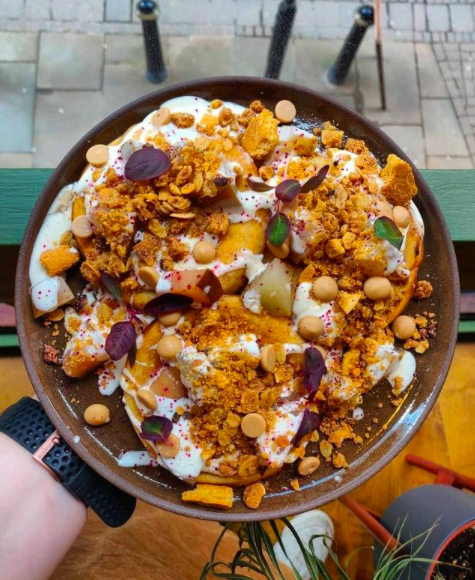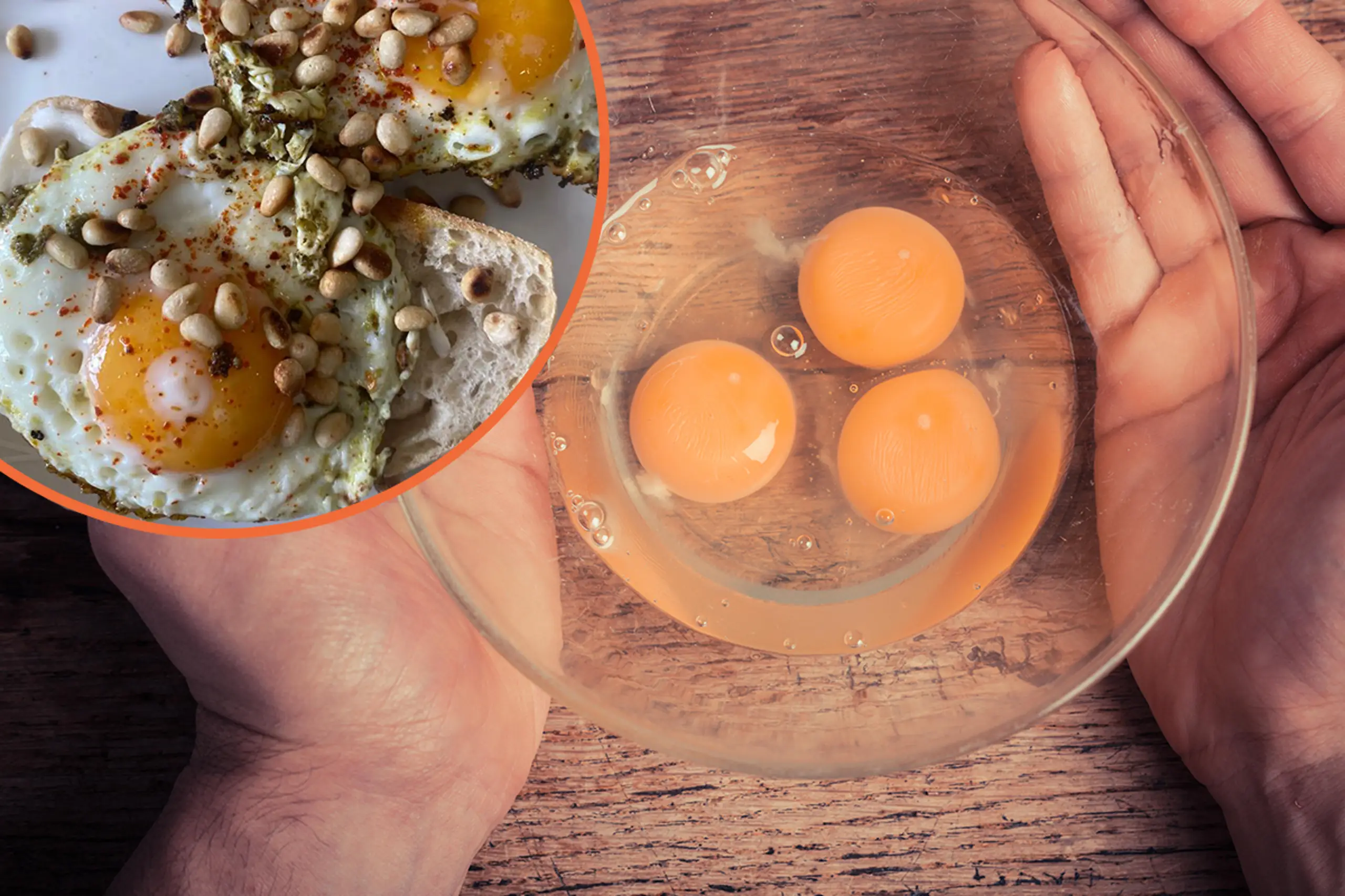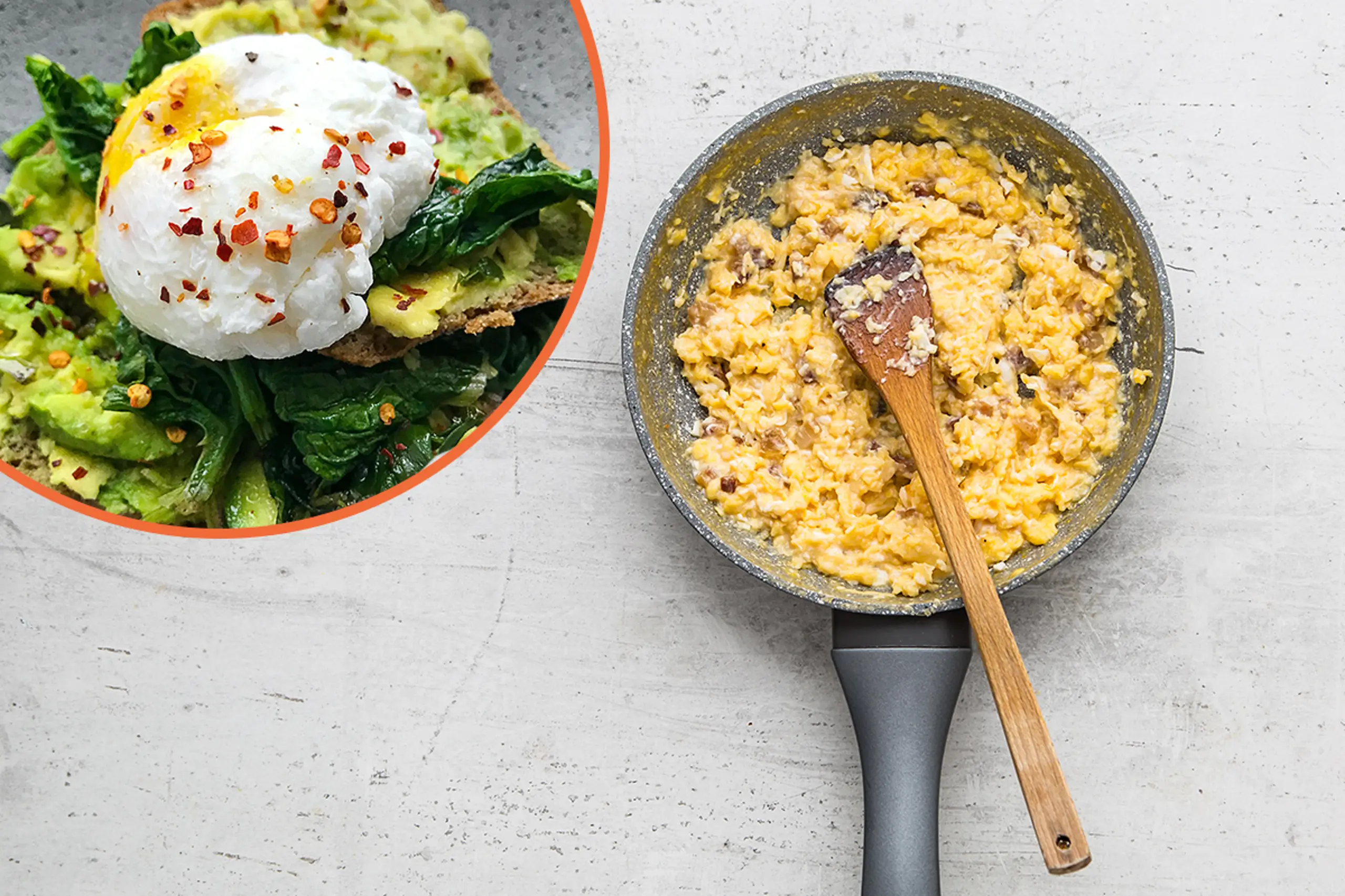Breakfast Recipes
Morridge explains why breakfast may never be the same again after COVID-19
14 May 2021
4m
In the before time, we wouldn’t have thought twice about going out for breakfast. For many of us, the idea of making it through a commute without a cup of coffee or a bite to eat would have forced us to resign from whatever we were doing on the spot and stay in bed.
How times change. As we all struggle with the post-pandemic foodscape, it’s becoming increasingly clear that our midweek breakfast habits will have to evolve. What’s less obvious is exactly what the future looks like.
To understand what’s on the horizon for breakfast, we decided to sit down with James Morris of Morridge in Birmingham. As he reveals, uncertainty doesn’t have to mean doom and gloom.
 The coronavirus pandemic may have permanently changed our breakfast habits (Credit: Pixabay)
The coronavirus pandemic may have permanently changed our breakfast habits (Credit: Pixabay)
Morridge – breakfast is changing
Set up by brother and sister duo James and Naomi Morris, Morridge is part of the Birmingham breakfast bar vanguard.
Opening in 2020, James tells me that the pair spotted a gap in the local market and seized their chance. As he explains: “No one was doing porridge in Birmingham. Where we’re positioned is very office worker-heavy. We initially had this spot to offer a healthy breakfast option.”
However, the last 12 months have forced a major rethink. With offices shut and commuters stuck at home, the business has branched out, exploring partnerships with takeaway specialists such as Deliveroo. The menu itself has also undergone a major transformation.
“Because of COVID and restrictions on trade,” James reveals, “we’ve only really been doing the porridge in the morning.”
He goes on to explain that the restaurant now provides a range of Ottolenghi-inspired salads as part of a lunch service. Although an important part of the business, it’s a far cry from the original vision.
 One of the spring porridge bowls at Morridge (Credit: Instagram/Morridgeoatsandcoffee)
One of the spring porridge bowls at Morridge (Credit: Instagram/Morridgeoatsandcoffee)
How COVID is ruining our breakfast
In some cases, the difficulties encountered across the restaurant industry are a temporary inconvenience. However, for businesses like Morridge, it looks like the pandemic may have done permanent damage.
One of the key issues is the extent to which the pandemic may fundamentally alter our behaviour. As James explains: “I think people might now have a bit more time to have their breakfasts at home. Especially if they can be more flexible with their working day, they might be coming into the office a bit later.”
This, obviously, is not ideal if you specialise in delicious, high-end breakfast supplies.
In ordinary times, the Morridge menu reads like a dream for any office worker. Customers can enjoy lovingly created recipes, made with top-quality oats and intriguing flavour combinations.
READ MORE: Fuku’s Anna Sung reveals why Manchester is the next street food capital of the UK
The spring porridge menu, for instance, boasts dishes like oats with lemon cream, sticky baked peaches, lavender, prune and earl grey jam. It’s clearly an upgrade on a drab bowl of Ready Brek.
However, it’s becoming clear that the pandemic has had a devastating effect on some areas of casual cafe culture. The impact on huge high street chains such as Pret a Manger, for instance, is already well documented.
The danger comes when difficult circumstances damage diversity. Sadly, independent businesses often aren’t in as strong a position as the industry big beasts to survive and thrive.
 The Morridge menu also includes options like pancakes (Credit: Instagram/Morridgeoatsandcoffee)
The Morridge menu also includes options like pancakes (Credit: Instagram/Morridgeoatsandcoffee)
Why there’s still hope for breakfast
There’s no doubt that the last 12 months have been a real struggle for cafe owners across the country. However, despite the doom and gloom, James still believes that there is a place for the likes of Morridge at the breakfast table.
As he puts it: “I still think that there’s a lot of people that don’t have time in the morning. What we offer is so specialised – it’s kind of healthy and we do bold flavours.
“For instance, one porridge we did combined blood orange, sour cherry curd, pomegranate and sesame seeds. Because it’s quite specialised, I think it will still attract the type of person that wants to have this breakfast.”
As James sees it, Morridge’s USP of high-quality porridge will help it survive into the future. But beyond this, he’s hopeful that the pandemic won’t diminish our desire to hang out outside the home.
He explains: “A lot of people do like working from home. But a lot of people who come in can’t wait until the office is open again fully because they want that social interaction.
“Maybe (Morridge) will become more of a hang-out spot, for meeting up and maybe for meetings. I think people enjoy hospitality – I don’t think that’s ever going to go away.”
READ MORE: Bubala’s head chef Helen Graham explains why there’s never been a better time to eat veggie
There’s no doubt that times are tough all across the food industry. However, it’s also clear that the restaurants and cafes that really offer something unique rely on local support.
As James puts it: “We’ve seen people come in who want to support local businesses that they know give back to the community… I’d like to think that people want to get out there and experiment and try new things.”
While a business like Morridge can roll with the punches, customers’ habits will ultimately determine whether top-notch porridge remains part of Birmingham’s breakfast scene.
This article is part of Twisted’s brand new Cheque It Out campaign.
The last year has been devastating for our restaurants. Like many of you, we want to do everything we can to help them get back on their feet.
Over the next few weeks, we will be working closely with chefs across the country, showcasing some of the incredible talent across British food. Visit the Cheque It Out page on our website to find out more.



